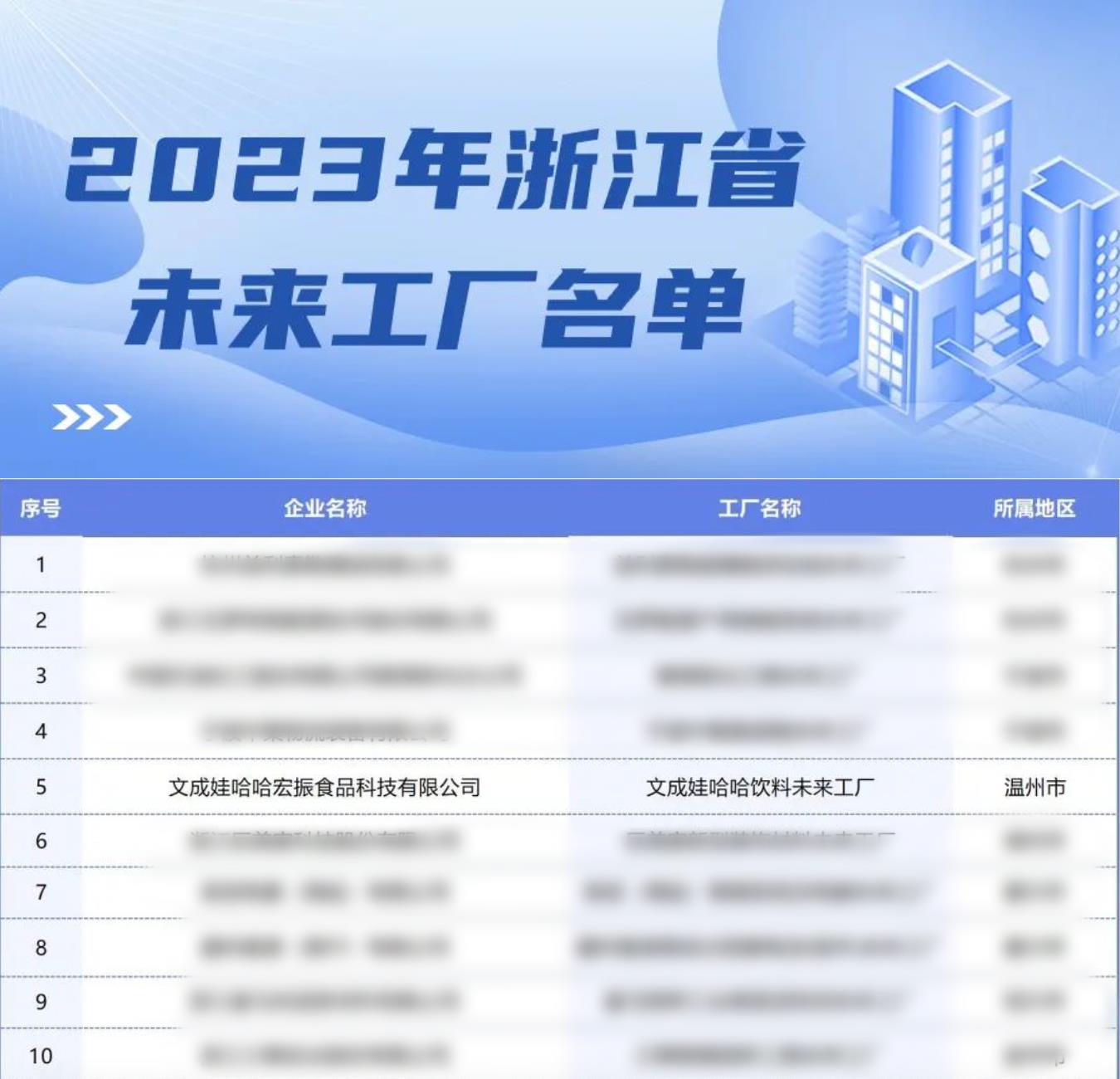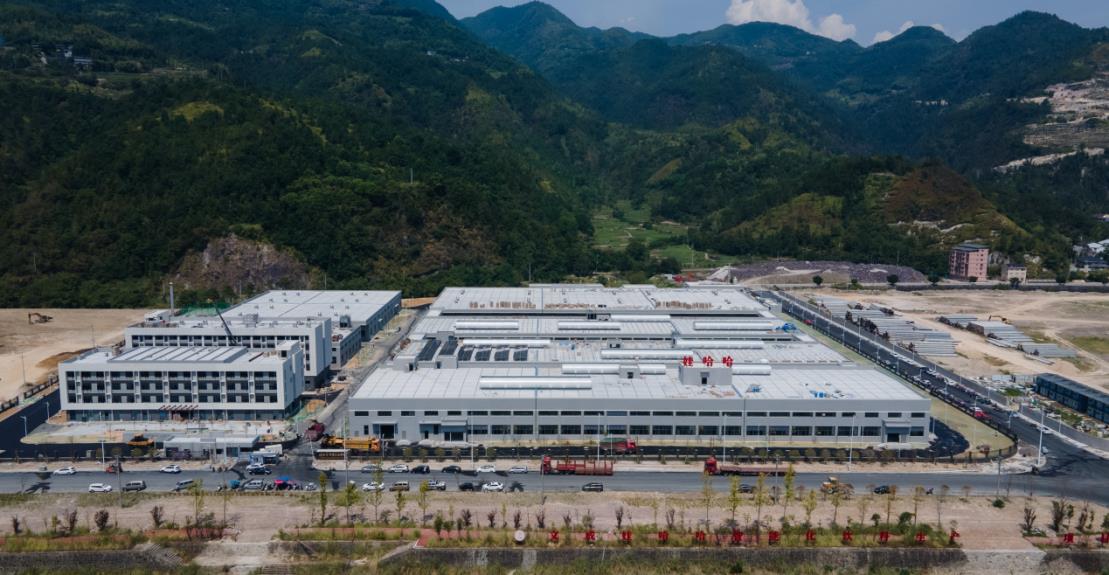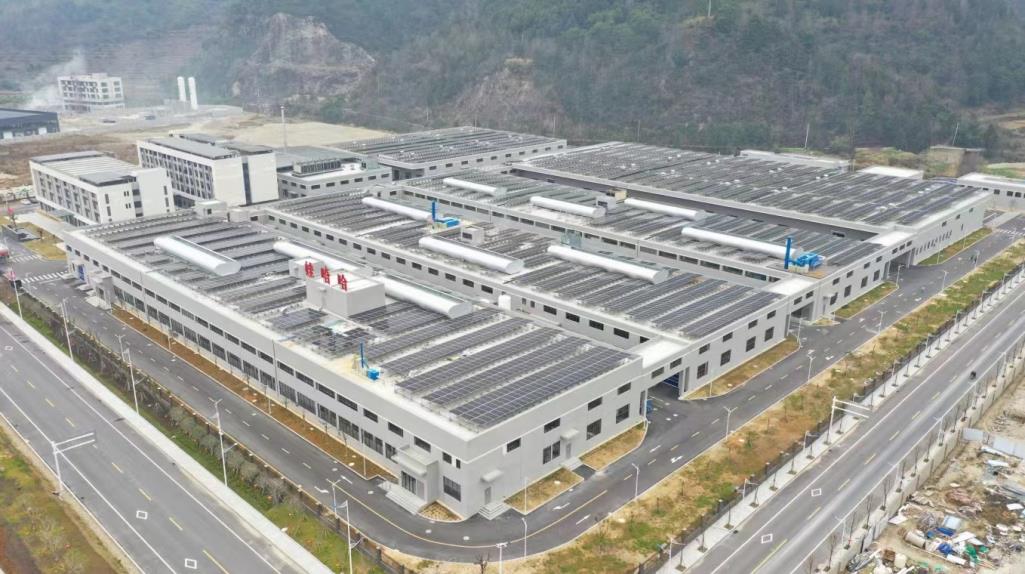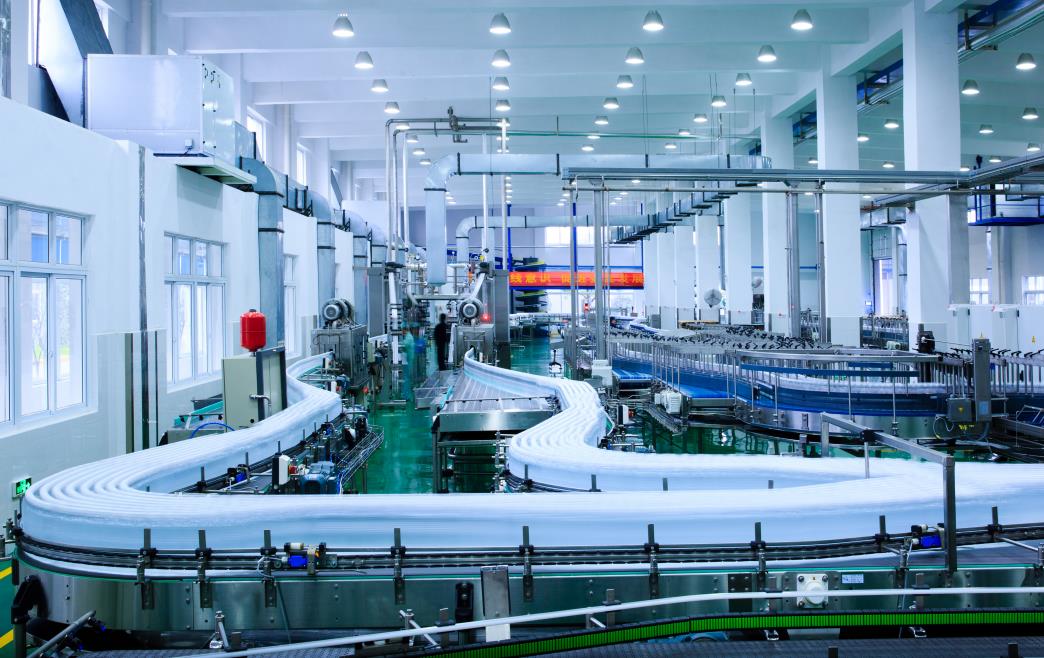From the "future factory" built by Wahaha in the mountains, see the technological content behind a bottle of beverage
Recently, the official of the Zhejiang Provincial Department of Economy and Information Technology announced a "List of Future Factories in Zhejiang Province in 2023", identifying 213 factory/workshop projects in Zhejiang Province as provincial future factories, smart factories, and digital workshops in 2023. Among them, Wencheng Wahaha Hongzhen Food Technology Co., Ltd. appeared in the list and was successfully rated as "Zhejiang Province Future Factory in 2023".

Wencheng Wahaha Hongzhen Food Technology Co., Ltd. is the unit of Wahaha Wencheng Factory. This "factory in the mountains", which has attracted much attention since the start of construction two and a half years ago, has also been regarded as the latest thinking and exploration of Wahaha Group in the field of intelligent manufacturing.
The "factory of the future" in the mountains drives rural revitalization and high-quality take-off

Wahaha Wencheng Future Factory is located in Bailuzhou Water Economy Industrial Park, Wencheng County, Wenzhou City. It is the fourth factory invested and built by Wahaha in 26 counties in mountainous areas of Zhejiang Province, and one of the 76 branch factories established by Wahaha in less developed areas across the country in the past 37 years. Wencheng Base covers an area of about 120 acres and mainly produces innovative beverage knock-out products such as Wahaha AD calcium milk, eight-treasure porridge, high-calcium multi-dimensional milk drinks, and coconut milk.
The Wahaha Wencheng project owner said: "Generally speaking, large enterprises build factories in underdeveloped areas, and they may transfer backward production capacity. But Wahaha builds factories to bring the most mature production lines and the most advanced technology to 26 counties in mountainous areas of Zhejiang, and help local industries develop through’technological hematopoiesis’, sowing the seeds of technological take-off in the mountains."
It took only 15 days from negotiation to signing, only 2 months from signing to land supply, only 11 working days from land supply to construction project planning license, and only 7 months from starting construction to commissioning and production of the first production line… Now officially certified as the "factory of the future", the construction of Wencheng factory is not only a vivid example of the industrial prosperity of 26 counties in mountainous areas of Zhejiang, but also runs out of the "Wahaha speed" of intelligent manufacturing project construction.
At present, Wencheng factory has completed multiple rounds of recruitment, with nearly 200 employees, the vast majority of whom are locals in Wencheng County. Wahaha Wencheng factory continues to "make blood" for the local area in terms of providing employment, raw material procurement, and logistics promotion. While driving the development of related industries in the region, it has also taken the lead in setting a model for the intelligent transformation and upgrading of food and beverages.
Fresher, safer, aseptic cold irrigation guarantees the core competitiveness of products
In general, the hot filling process of traditional beverage production lines requires a filling temperature above 90 ° C to meet the sterilization needs of liquids. High temperature sterilization takes a long time and the temperature is high, and some flavor substances in the beverage may be affected by the temperature during this process. The taste and aroma of beverage products filled at room temperature will be more self-heating, but there are higher requirements for the sterilization process.
Wahaha Wencheng factory has introduced the most advanced intelligent aseptic cold irrigation equipment, using dry hydrogen peroxide gas sterilization process, aseptic bottle blowing technology, and aseptic level microbial isolation system, which can achieve the log6 microbial control level, which is the highest standard in the global industry. This also means that each bottle of "Wahaha" that is rolled off the assembly line of Wencheng factory can retain nutrients and flavor to the greatest extent while ensuring product sterilization requirements.
Taking Wahaha "coffee position" coffee as an example, the production process adopts "high temperature spray drip filtration" and "instantaneous fresh-locking technology". Through the filling and sterilization process of the aseptic room temperature cold filling production line, the product realizes aseptic blowing and aseptic room temperature filling, which retains the fresh aroma of coffee to the greatest extent and truly achieves "fresh can" quality.

Cleaner, more efficient, green production escorts green mountains and waters
Looking down from the factory, patches of gray-black photovoltaic panels cover the factory roof like scales.

In response to the national 3060 double carbon policy, Wahaha actively promotes the installation of distributed photovoltaic power generation devices to gradually establish a multi-energy complementary, optimized combination of fossil energy and new energy, and then establish a low-carbon green power system with renewable energy as the main body. Wahaha Wencheng factory has installed a total of 4.5MW distributed photovoltaics, with a total power generation area equivalent to 14.69 standard football fields. The annual power generation and consumption are about 1.30 million degrees, which can reduce carbon dioxide emissions by 1020.5 tons.
Wahaha Wencheng Future Factory practices green production, reducing water consumption and wastewater discharge and improving water resource utilization through steam condensate recovery, RO concentrated water recovery, water-saving management at key water points, and odor biological purification treatment technology in the sewage treatment process. Through the application of a series of green water-saving technologies, it can save more than 10,000 tons of water annually.
What’s more worth mentioning is that Wahaha Wencheng Future Factory has applied Wahaha’s self-developed flexible and intelligent low-emission CIP system for the first time. Each process pipeline in production can automatically call the corresponding cleaning program, cleaning parameters, and customized cleaning according to different production products and processes. To ensure that each pipeline has the shortest cleaning time, the best effect, and the lowest energy consumption. Special recycling treatment and reuse technology is adopted for the acid and alkali used for cleaning. Some of the cleaning water is recycled after special process treatment, which greatly reduces water consumption and sewage discharge. After the implementation of the project, Wencheng Factory will reduce the discharge of cleaning water and sewage by 52% every year, and reduce the consumption of acid and alkali by 30%.
Environmentally friendly has always been an inseparable goal of industrialization. Wahaha Wencheng Future Factory realizes intelligent energy management, improves energy utilization efficiency, and establishes a high-standard and highly integrated smart energy management system to promote industrial development while caring for greener mountains and greener waters.
Smarter, more flexible, full-link upgrades lead the era of Industry 4.0
Behind a bottle of beverage is Wahaha’s "butterfly change" breakthrough in full-link production autonomy and intelligent construction over the years.
As early as more than a decade ago, Wahaha began to lay out the digital and intelligent transformation. From the earliest introduction of foreign advanced production lines, to the later introduction of stand-alone integrated automated production lines, to the design and planning of future factories, through the "three-step" strategy, Wahaha has taken the lead in realizing the transformation and upgrading from automation to intelligence.
It is precisely because of its deep cultivation of back-end innovation capabilities that Wahaha has become the only enterprise in the food and beverage industry with the ability to develop, design, and manufacture molds, beverage production equipment, and industrial robots by itself. It was selected as the "first batch of intelligent manufacturing demonstration units of the Ministry of Industry and Information Technology of China" in 2015, and built the first intelligent beverage production line in the domestic industry in early 2017.

Today’s Wencheng Future Factory is fully confirming Wahaha’s latest practice of intelligent manufacturing. Relying on the WERP platform, Wahaha Wencheng Factory can quickly achieve interconnection with the group’s resources, information and data, integrate and apply the most advanced aseptic intelligent manufacturing equipment and modular production process in the industry, "one-click intelligent control" ingredient center, intelligent visual inspection, 5G intelligent warehousing, intelligent logistics platform and other advanced technologies to achieve comprehensive improvement in efficiency, cost, quality and other indicators, leading the future factory construction of the food and beverage industry.
This also means that Wahaha Wencheng’s future factory has been completely different from the Industry 3.0 format, but through the Internet of Things to connect automation equipment with orders, materials, networks, and data, and perform full-link information processing and calculation, ultimately with the least waste, the easiest and most effective communication, reducing intermediate participation links, and realizing the efficiency and energy conservation of Industry 4.0 production.
Step by step, steady progress. What is visible is the bottle of beverages on the shelf, what is invisible is the steady technological "internal strength" behind it, and consumers are expressing their enthusiasm and trust in the brand with good word-of-mouth evaluation and actual purchasing power. As Wencheng’s future factory "Wahaha" rolls off the production line and is sold nationwide, Wahaha will continue to move towards the "intelligent manufacturing benchmark" in the food and beverage industry.